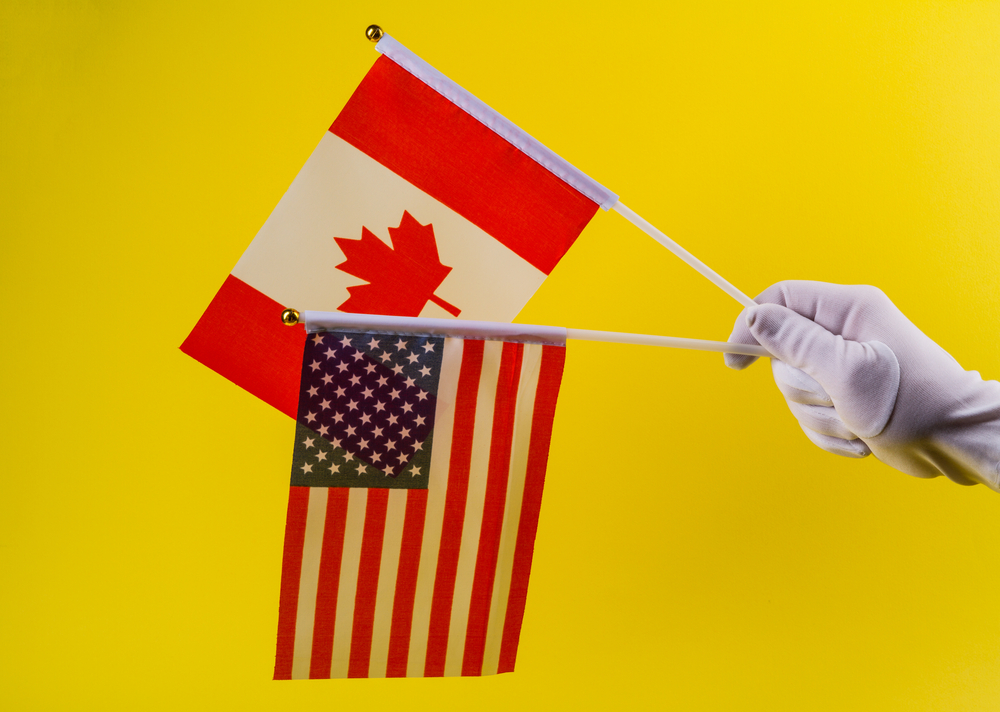Canadians with Cystic Fibrosis Live 10 Years Longer Than Americans, Study Finds
Written by |

Canadians with cystic fibrosis (CF) live 10 years longer than Americans with the disease, a study shows.
The life span of the average Canadian with CF was 50.9 years, versus 40.6 years for the average American, according to Anne Stephenson of St. Michael’s Hospital, the lead author of the study.
Stephenson looked at data from the U.S. Cystic Fibrosis Foundation Registry, which covered 45,456 patients, and from the Canadian Cystic Fibrosis Registry, which covered 5,941 patients, between 1990 and 2013.
The 10-year difference in lifespan showed up in the last five years of the study, 2009-2013.
Stephenson’s findings were published in the journal Annals of Internal Medicine under the title “Survival Comparison of Patients With Cystic Fibrosis in Canada and the United States: A Population-Based Cohort Study.”
Although the research did not cover the reasons for the life-span disparity, Stephenson believes the countries’ transplant policy, nutrition policy, and health-insurance systems played important roles.
A lung transplant can mean the difference between a cystic fibrosis patient surviving or not, and the research showed that a higher percentage of Canadians receive transplants.
The survival gap increased radically in 2005, the same year the United States began using a lung allocation score to assign transplant priority to people on waiting lists. Canada does not use such a score.
“Survival has increased in both countries, but Canada began to see greater improvements than the United States starting in 1995, with an even more dramatic increase in the survival rate in Canada noted in 2005,” Stephenson said in a press release.
In addition, Canada has encouraged CF patients to follow a high-fat diet since the 1970s. The United States has done so only since the 1980s. Higher caloric intake improves CF patients’ nutrition, which research has linked to improved survival.
One reason why Canadian survival rates have improved since 1995 could be that many Canadians have now been exposed to better nutrition since birth. The U.S. survival rate may rise as the benefits of its nutrition campaign cover more of its population from birth, the research suggests.
Stephenson found no difference in CF survival rates between Americans with private health insurance and Canadians with free, universal healthcare coverage.
But Canadians’ survival rate was better than Americans on government health insurance or with no health insurance. Canadians had a 44 percent lower risk of death than Americans on continuous Medicaid or Medicare, a 36 percent lower risk of death than Americans receiving intermittent Medicaid or Medicare, and a 77 percent lower risk of death than Americans with no health insurance.
“Achieving a better understanding of the drivers behind differences in survival rates is critical to our mission to improve and extend the lives of people with cystic fibrosis,” said Bruce Marshall, senior vice president of clinical affairs at the Cystic Fibrosis Foundation.
“As a result of this study we will be conducting further research to better understand the role of nutrition and insurance status – and are encouraged that the findings reinforce the central goal of our lung transplant initiative, a comprehensive effort to improve transplant outcomes for people with CF in the United States,” added Marshall, who was the foundation’s lead investigator on the study.
John Wallenburg, chief scientific officer of Cystic Fibrosis Canada, concluded that “the fight against cystic fibrosis is a global one. We are proud that Canadians with this disease are living longer than ever before. International collaborations such as the one described in this publication have the potential to help advance care for people living with CF not only in Canada and the U.S., but other countries as well.”






